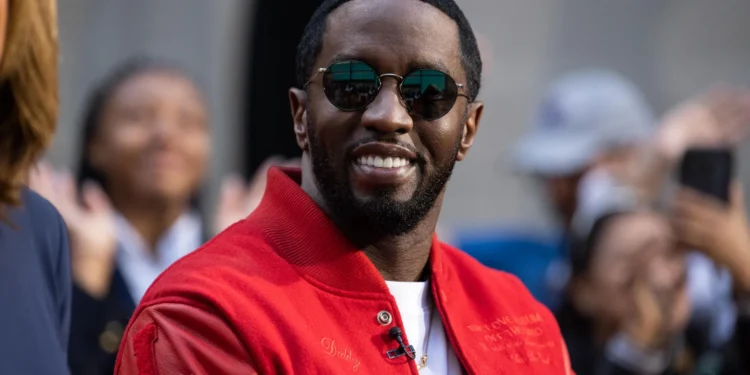Music mogul Sean “Diddy” Combs has been sentenced to four years and two months in federal prison after being convicted on charges related to transporting individuals across state lines for prostitution. The sentencing took place on Friday in New York, marking the latest chapter in the long and turbulent legal saga surrounding the 55-year-old hip-hop icon.
Federal prosecutors had pushed for a much harsher punishment, 11 years behind bars, arguing that Combs’ actions showed a pattern of abuse and exploitation. The judge ultimately settled on a shorter sentence but said a significant term was still necessary as a deterrent, noting skepticism that Combs would refrain from such conduct if released early.
Combs, who was also fined $500,000, has already served roughly half of his sentence, meaning he could be eligible for release in about three years.
During the sentencing hearing, prosecutors described the case as one of power and control rather than financial gain. “This is about a man who did terrible things to real people for his own gratification,” said Assistant U.S. Attorney Christy Slavik, according to court reports. “He didn’t need money, his currency was control.”
Combs’ former partner, singer Cassie Ventura, whose testimony was central to the prosecution’s case, accused him of forcing her to engage in sex with strangers on numerous occasions. In a letter to the court, Ventura described living in constant fear of retaliation for speaking out. “My worries that Sean Combs or his associates will come after me and my family are my reality,” she wrote, saying she has since relocated her family for safety reasons.
Her attorney, Douglas Wigdor, said the sentence acknowledges the “serious harm” caused by Combs’ conduct and praised Ventura’s courage for inspiring other victims of abuse.
Civil rights attorney Gloria Allred, who represented several of the victims, told reporters outside the courthouse that while the ruling brings some closure, the defense is expected to appeal. “It’s finally over, at least for now,” Allred said.
Combs was convicted in July under the federal Mann Act, also known as the White-Slave Traffic Act, for organizing and financing flights for sexual encounters involving women and male sex workers. He was acquitted, however, of the more severe racketeering and sex trafficking charges that could have resulted in a life sentence.
During his defense, Combs’ legal team argued that the sexual encounters, sometimes referred to as “freak-offs”, were consensual and that he had been unfairly targeted. Defense attorney Nicole Westmoreland described Combs as remorseful and highlighted his charitable contributions and influence in the entertainment industry.
“It wouldn’t be right to erase the years he has spent uplifting others because of mistakes he’s made,” Westmoreland told the court.
In a letter to the judge before sentencing, Combs expressed regret, saying, “The old me died in jail, and a new version of me was reborn.” His lawyers also presented an 11-minute video featuring clips from his family life, philanthropic efforts, and career milestones. Witnesses said the artist broke down in tears during the presentation.
Several of Combs’ children spoke in his defense, urging leniency. His son, Justin Combs, called his father “my superhero,” while his daughters, Chance and D’Lila, wept as they pleaded not to lose their only remaining parent after the 2018 death of their mother, Kim Porter.
Despite emotional appeals, the court denied Combs’ previous request for release on a $50 million bond earlier this year. Judge Arun Subramanian ruled that Combs had not shown by “clear and convincing evidence” that he posed no danger to the public.
While Combs’ legal team prepares to appeal, prosecutors maintain that the sentence is a measured reflection of years of abuse hidden beneath fame and influence.







